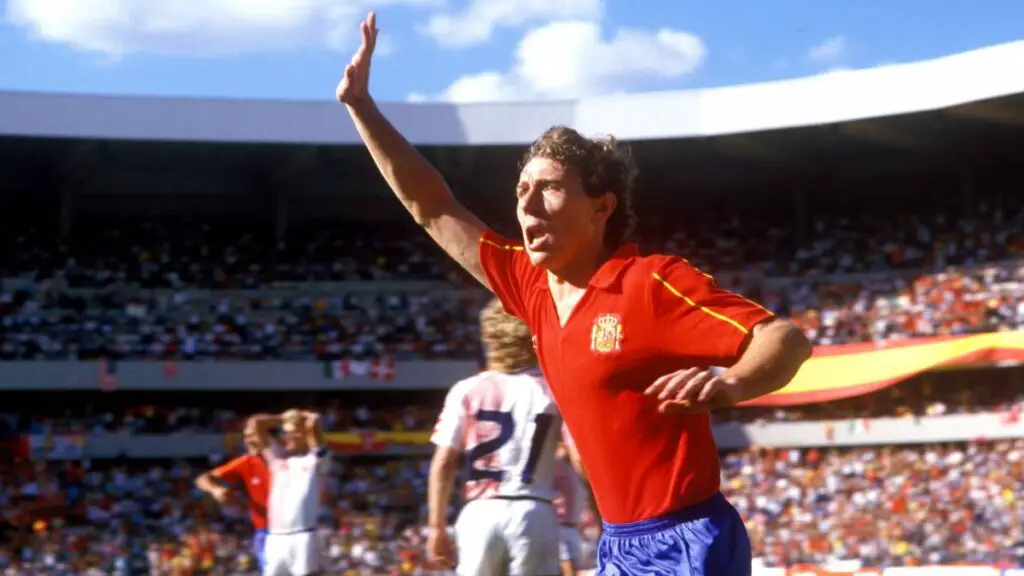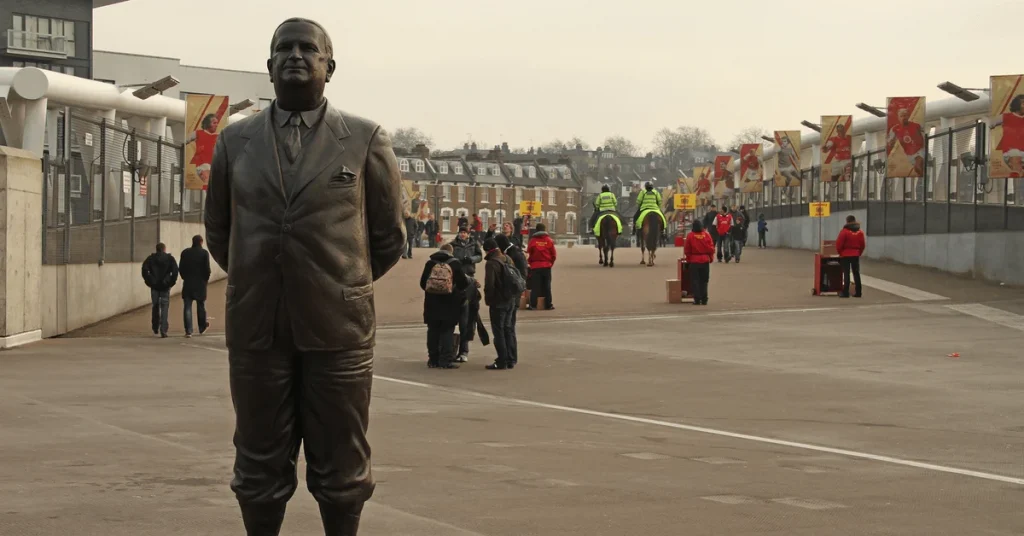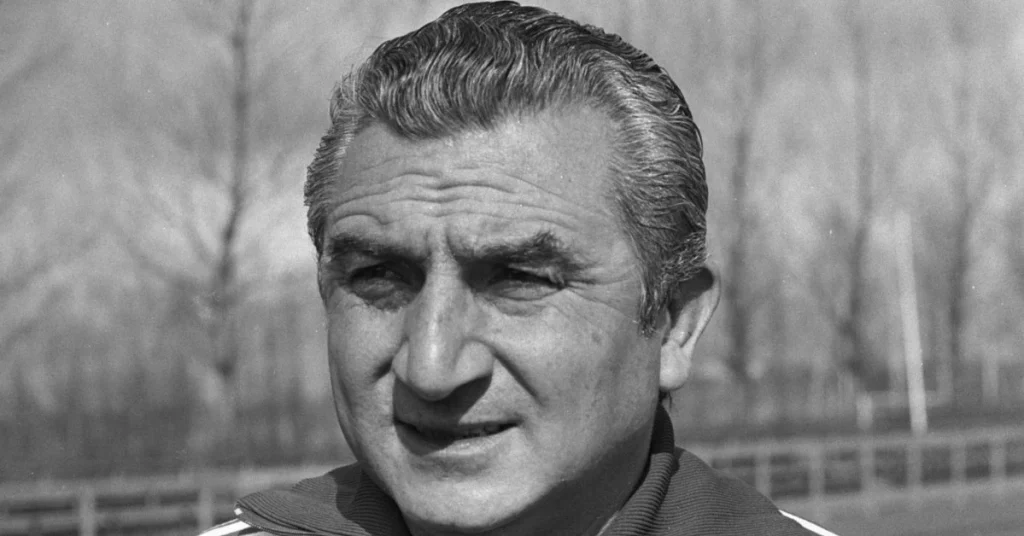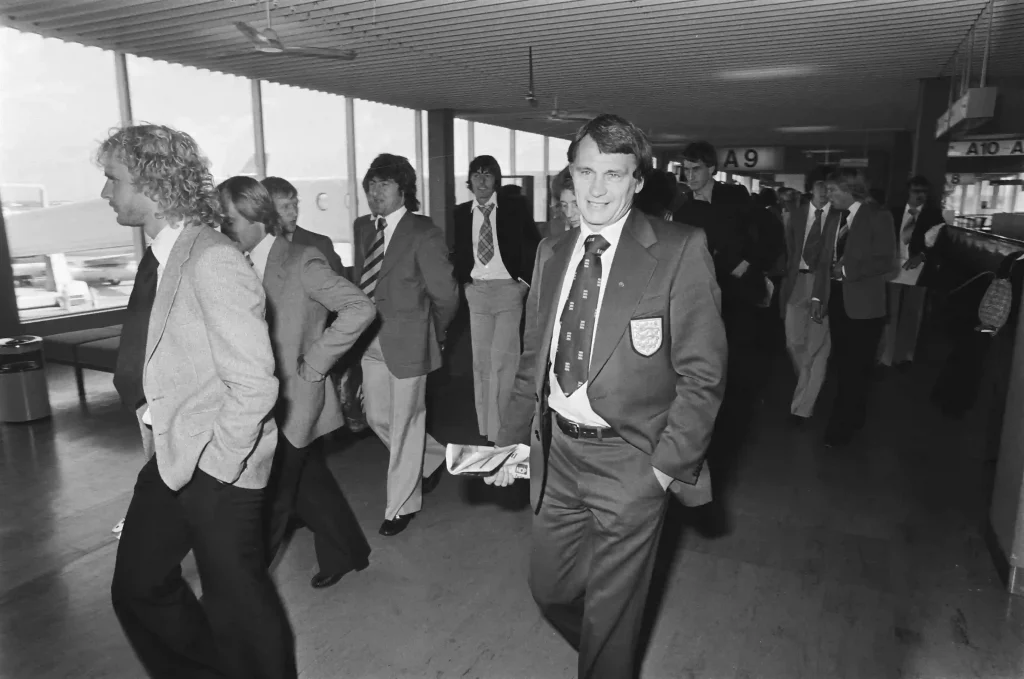When we think of great Real Madrid strikers, many names come to mind. Raul, Di Stefano, Hugo Sanchez, Cristiano Ronaldo, even Karim Benzema.
But one often left out by the mainstream media and public, was a huge part of Real Madrid rediscovering success in the 80s after control of La Liga slipped away from them.
Butragueño and his 4 cohorts are regarded as the catalyst that turned Madrid’s form around and put them back on top.
An influential striker who has faded somewhat from mainstream recognition, Butragueño deserves huge plaudits for his achievements.
Those who grew up watching him know better, but many football fans sleep on Butragueño’s huge contributions to Madrid.
Madridista From Birth
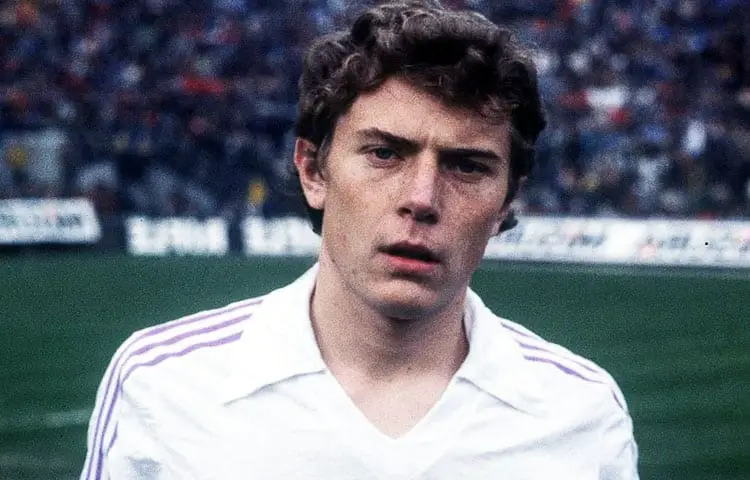
Spending his childhood playing for a local side in Caseriche, he quickly proved himself destined for greater things, as scouts saw his ability and potential and recruited him for their youth academy.
At the time Madrid had been struggling to win trophies. From the 1980-81 season to the 1983-84 season, Madrid narrowly lost out on La Liga victory every year.
They needed something extra to push them over the line.
As Madrid struggled, a young Butragueño was making coaches take notice while playing for the Real B team. This was a side that plied its trade in the second tier of Spain, so already he was proving himself ready for senior football.
65 games, 2 years and 37 goals later, he’d finally make his debut for the first team in 1984.
The great goal-scoring hero Alfredo Di Stefano was the man to hand another great Madrid striker his debut.
Most of history’s greatest-ever strikers need a little bit of time before they adapt and earn a place in the team.
Homegrown Hero
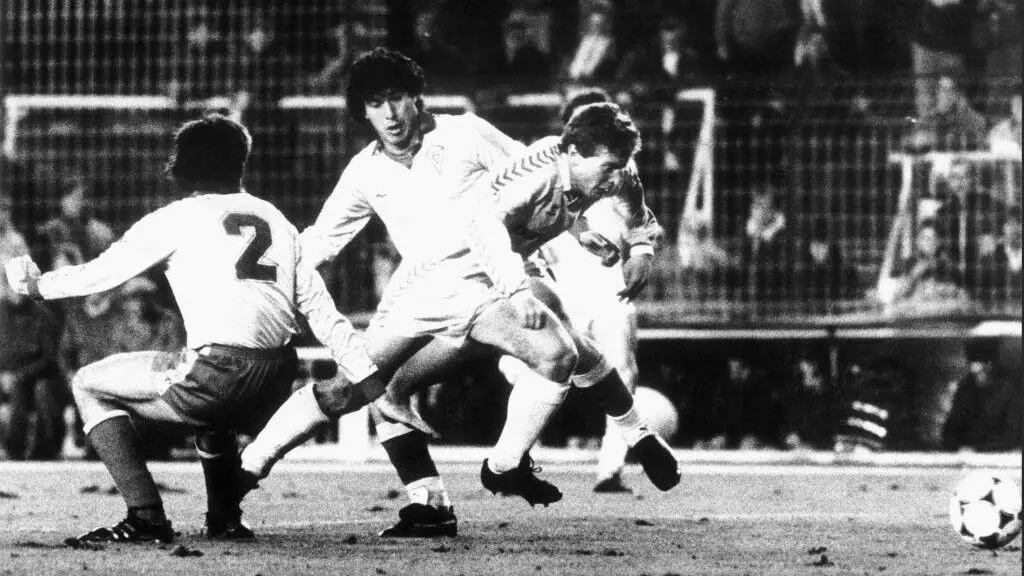
But Emilio was what they’d been missing.
He made an incredible impact, scoring two and assisting a third. The last two Madrid goals came in the 88th and 89th minute, snatching all the points. Butragueño was given man of the match despite only having one-half of first-team football to his name.
It’s safe to say that Butragueño’s ascent through the ranks was meteoric, he exploded into the team, and played in 10 of the remaining games, scoring another 2 goals.
It was a good start, and the next year, with a full season to work with, he further improved, proving to be much more than just a typical poacher.
Having proven himself capable, he was a first-team regular the next season, where 10 goals in 29 appearances made for a solid start to life as a first-team regular.
But the highlight of his season came in Europe. Making his Continental debut, he netted a hat-trick against Anderlecht, contributing 2 assists in addition for good measure, in a 6-1 shellacking of the Belgians.
Real went on to win the UEFA Cup, beating Hungarian side Videoton SC in the final.
But another huge milestone came the same season…
The year before, the Spanish forward had been called up for Euro 1984, but watched every game from the bench, failing to make his first International appearance.
But a few months later, he’d finally get his chance.
His league debut saw him delight, his European debut somehow took things to the next level. Now on the highest level of football, he’d score on his first appearance.
Helping his country to a 3-0 win over Wales as Spain bid to Qualify for the 1986 World Cup.
The next few seasons would see Butragueño earn himself one of football’s coolest-ever nicknames.
“El Buitre” – The Vulture
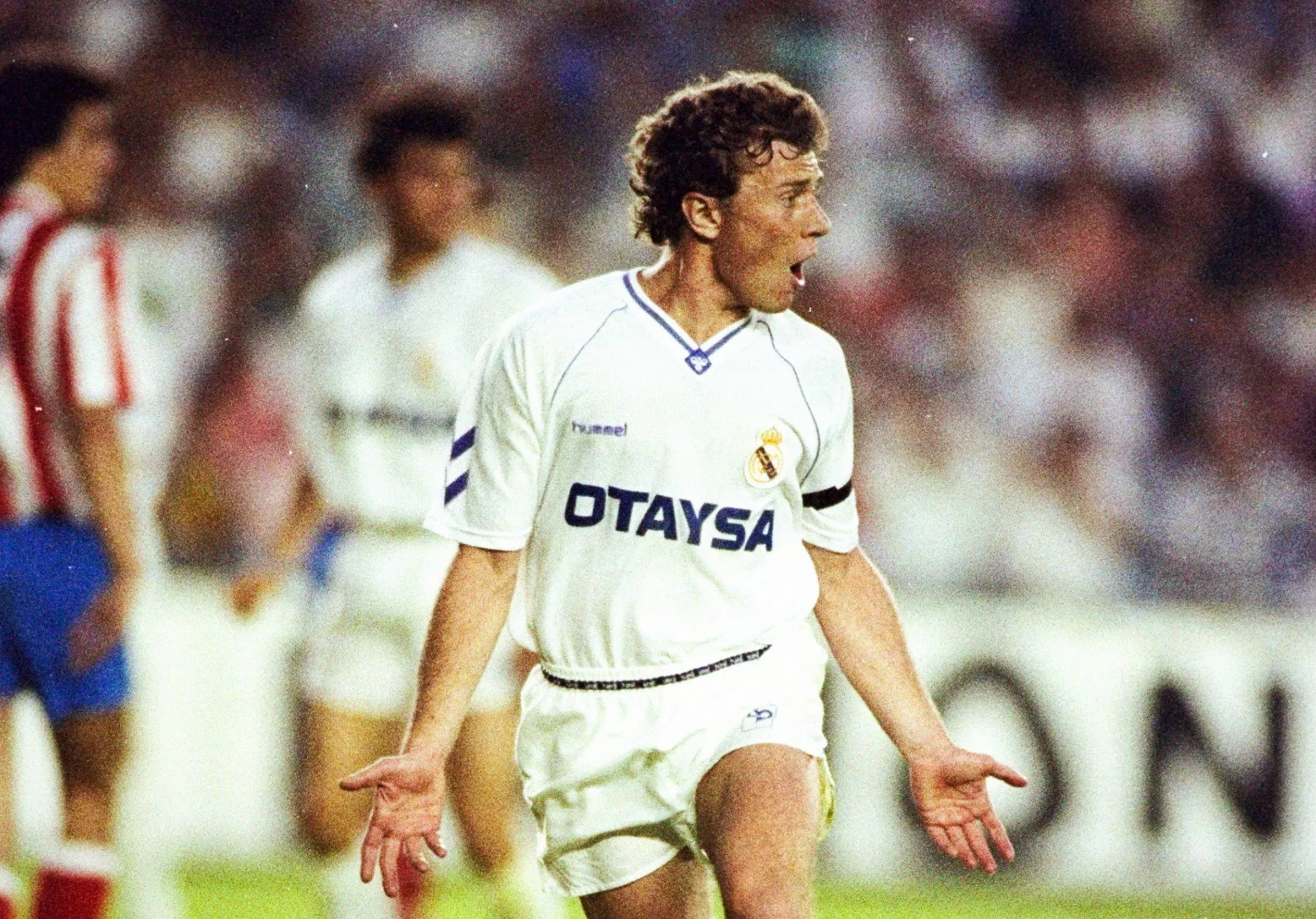
He wasn’t a tall or imposing figure, in fact at 5ft 7’ he was anything but.
However, his intelligence, control and deadly finish saw him frequently find important goals even with limited service. He took what he could get, with an unerring finish that made his moments count.
The name stuck, and soon, the group of Manolo Sanchís, Martín Vázquez, Míchel, Miguel Pardeza and of course “El Buitre” himself became known as “La Quinta del Buitre” or ‘The Vultures Cohort”, All five players came through Madrid’s academy.
The next year, the Cohort was in full effect, as the players linked up to help Real Madrid to a first title in six years.
Not content with just domestic success, a dramatic UEFA Cup charge saw Madrid take home a premier piece of European silverware.
Coming back from a 3-1 first-leg defeat to Inter Milan in the Semi-Final, turning it around to take it to extra time, and winning 5-1 on the day, Madrid waltzed past Koln in the final.
A 5-1 demolition of FC Koln in the first leg, all but handed the trophy to Real, as despite a 2-0 Koln victory in Germany, Madrid were victorious.
Spain once again came calling. The Vulture had proven useful in Spain’s World Cup qualification, and for his exploits was rewarded with a place in the national squad for the very same World Cup.
In a tournament that marked the pinnacle of his international career, Butragueño was in inspired form.
A crucial goal from the man himself in a 2-1 win against Northern Ireland in the Group Stage saw Spain through to the Knockouts, but the best was yet to come.
Facing a Danish side that would win the European Championships 6 years later, Spain romped to victory, 5-1.
“El Buitre” was involved in every goal scored…
He’d assist one and score four, joining an exclusive list of just 6-players to score 4 in a World Cup game.
His exploits in this tournament, and the season earnt him 3rd place in the 1986 Ballon d’Or
A Wake of Trophies
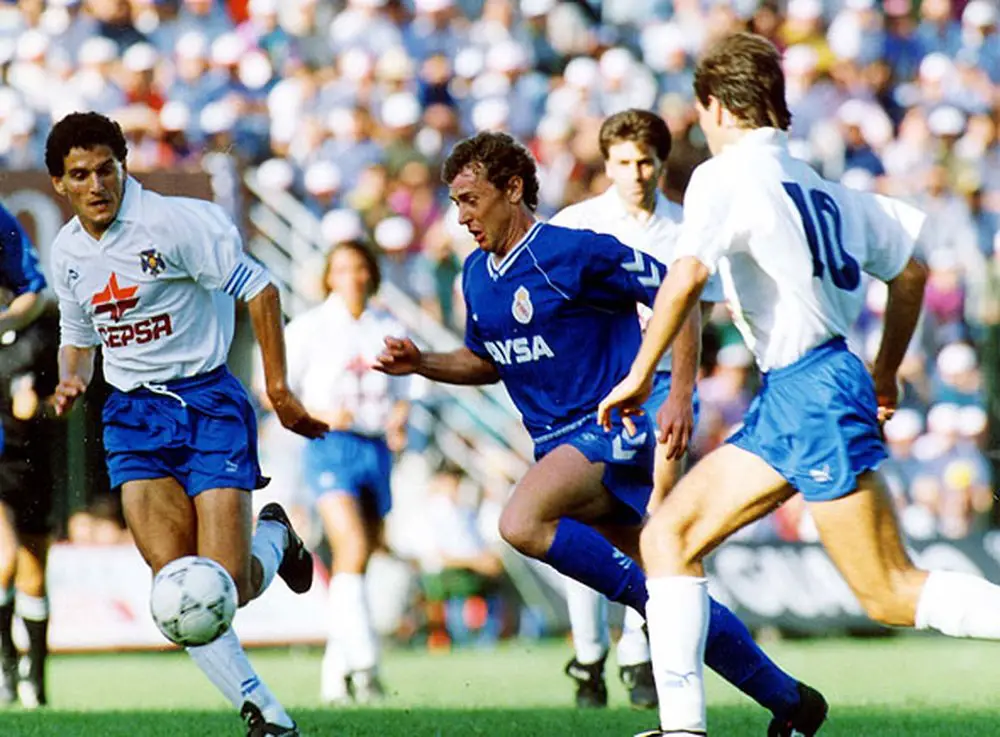
Amongst all this silverware, Butragueño’s goal contributions would remain consistent.
He was a classic second striker, in the mould of Simonsen, Keegan or Gianfranco Zola, his league goal tallies ranging from 10-15 across Madrid’s 5 titles in a row.
In 87, He played an integral role in Madrid’s European Cup run, as they fell to Bayern Munich in the final.
With a La Liga title to his name and stellar European performances, he once again came 3rd in the Ballon d’Or voting, for the second time in a row.
During this 5 consecutive league title period, Madrid had comfortably one of the best teams in the world.
With La Quinta Del Buitre, Francisco Buyo in goal, Chendo at Right-back and Hugo Sanchez up as the main goalscorer, it’s no surprise Madrid were so good.
It’s also no surprise Butregueno became known as the Vulture when you look at Sanchez’s goal-scoring record in his Madrid seasons. Between the 85/86 season to 89/90, his worst goal tally was 22 in 33. His best was 38 in 35. Those are just in the league…
Fair to say, The Vulture really was feeding off scraps, but he was an excellent partner for Sanchez to play off of.
In 1991, Butregueno would show that when needed he could step up and deliver.
As Sanchez struggled with injuries, the striker was 33 at this point, he could only play half the games all season, still managing a tally of 12 in 19.
But while Sanchez was missing, Butragueño took on a higher scoring role, as he filled in for the Mexican when needed, and delivered his best-ever return, 19 in 35.
13 of his 19 came in games where Sanchez was injured, with the Mexican out the whole second half of the season.
A Lone Vulture
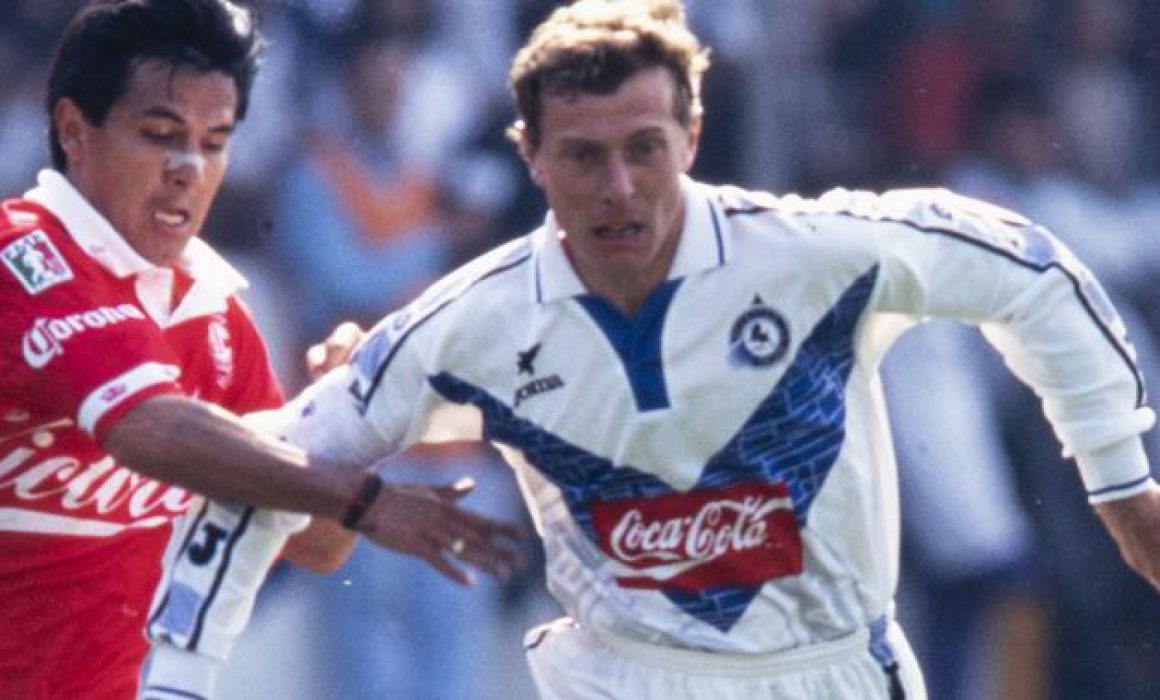
Madrid slumped, and while El Buitre still kept up the same level of performance, without a main striker to play off of goals started to dry up.
In fact, in the 91-92 season, Madrid’s top scorer was Fernando Hierro, a defensive-midfielder, who later turned Centre-back. Somehow he scored 21 goals in the league alone, leaving Butragueño in the dust sitting on 13.
By 93-94, things at Madrid had really started to turn sour. The lack of a recognised goal scorer, and the Cohort having long been disassembled, Madrid faltered to a 4th-place finish in the league.
It was time for a change, and a shifting of the old guard was needed. A rebuild was at hand.
The Vulture was put out to pasture, and he’d join Mexican side Celaya where he’d spend 3 years and scoring 29 in 91 games.
There are better goal-scorers out there, but Butragueño was one of the greatest second-strikers to ever play the game.
Now an outdated position that has evolved into a variation of an attacking midfielder, it’s not a role you’ll see in football much any more. Roberto Firmino being the only recent example that comes to mind.
But his influence on Madrid’s history can be felt deeply thanks to their 5 League titles in a row between 85/86 and 89/90
The Vulture may watch on as the younger birds swoop and feast, but his spirit continues to soar in the hearts of those who cherish the beautiful game.
Honours and Achievements
Real Madrid B
- Segunda División: 1983–84
- La Liga: 1985–86, 1986–87, 1987–88, 1988–89, 1989–90, 1994–95
- Copa del Rey: 1988–89, 1992–93
- Copa de la Liga: 1985
- Supercopa de España: 1988, 1989, 1990, 1993
- UEFA Cup: 1984–85, 1985–86
- Copa Iberoamericana: 1994
Spain
- UEFA European Championship runner-up: 1984
Individual
- Bravo Award: 1985, 1986
- Ballon d’Or third place: 1986, 1987
- Pichichi Trophy (La Liga Top Scorer):1990–91
- FIFA World Cup Silver Boot: 1986
- FIFA World Cup All-Star Team: 1986
- Guerin Sportivo All-Star Team: 1986
- FIFA 100
